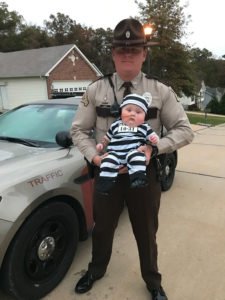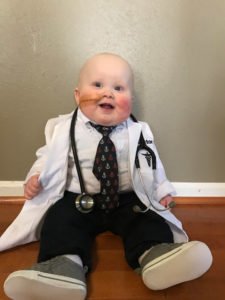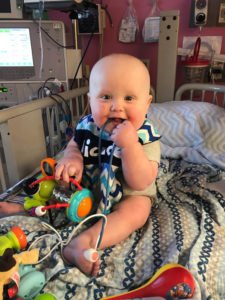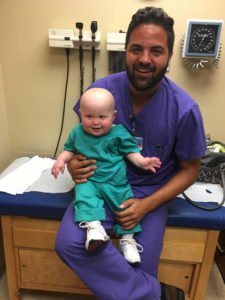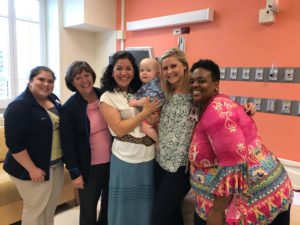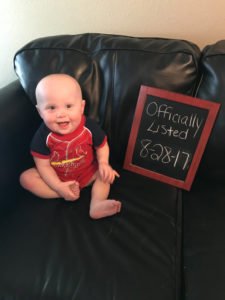Michael Loness
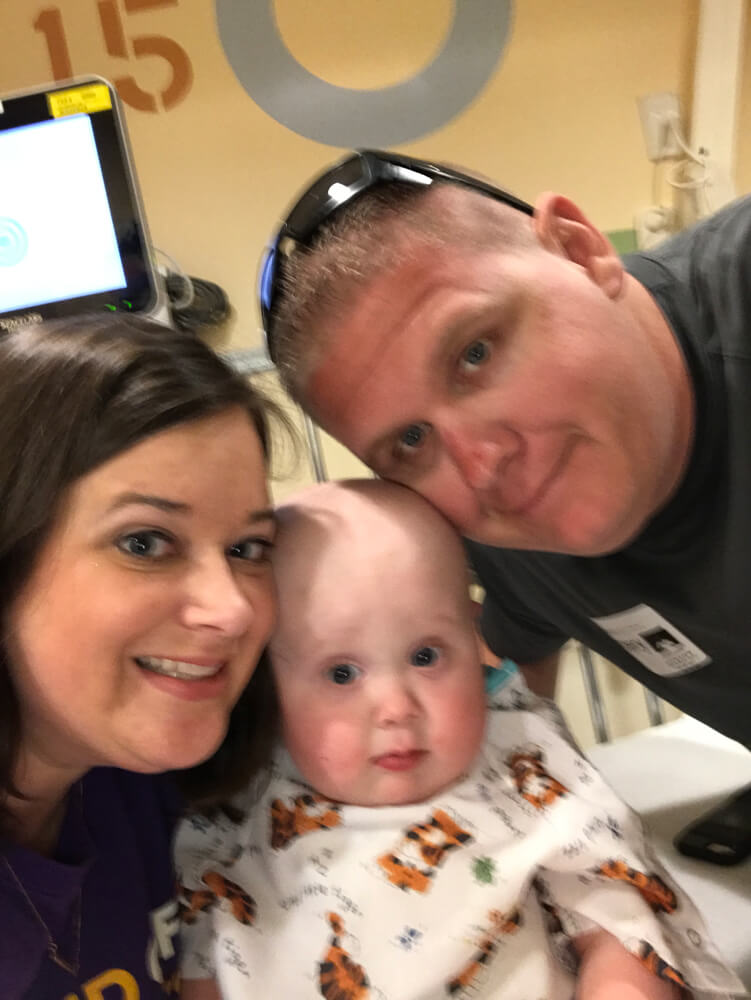
Shawn and I became a part of the Glennon family the day our first child Michael was born. I was on hospital bed rest for eight weeks prior to his delivery. When Michael was about 6 hours old, he was transferred to the Neonatal Intensive Care Unit (NICU) at SSM Health Cardinal Glennon Children’s Hospital because he needed pediatric nephrology. Michael’s kidneys did not fully develop and it was estimated that he was born with only 8% kidney function. We were immediately told that a kidney transplant would be the ideal treatment, but Michael needed to be 22 pounds in order to be listed for this. As we were staring at our 6 pound, 3 ounce baby boy, we felt it would be years before we reached that weight. Michael was also born with a colo-rectal abnormality and needed a colostomy bag. When he was just 2 days old, Michael went to the operating room for the first time. His kidney function remained stable with the help of IV medications, but the nephrology team informed us that Michael would need to be started on dialysis, as his kidneys were not functioning enough to remove the toxins and waste products as they should.
The day before Michael turned a month old, he went for his second surgery and had his dialysis catheter placed. This began our process of getting Michael home for the first time. Michael began on dialysis 24/7 and went home on 12 hours of dialysis each night. The day we brought our baby home for the first time, he was just under 4 months of age. At 10-months-old he was admitted into the hospital for his first corrective surgery. This surgery meant we would be bringing him to the dialysis center at the hospital three times a week.
Much of our life was planned around these dialysis treatments. Since he was born, Michael has had 11 surgeries. He has a feeding tube because he is unable to eat enough by mouth to keep him growing and maintain the proper calorie intake. Because he sees so many specialists, he is followed by the Complex Medical Care Team. The Complex Care Team works with his surgery team, nephrologist, dialysis nurses, dietitian and transplant team.
In August 2017, Michael was added to the National Kidney Registry, joining about 115,000 people waiting for a transplant. A donor kidney would allow him to stop his dialysis treatments and avoid the health risks involved. Neither Shawn or myself were a match.
We hoped for a kidney from a living donor, which can last 15 to 20 years compared with 8-10 years, the average utility for a kidney from a deceased donor. Those years can mean the difference for Michael having to do this again as a kid or not until he is an adult.
Enter Robyn Rosenberger. We met Robyn in April 2017 when she delivered a TinySuperheroes cape in person to Michael. TinySuperheroes is dedicated to creating child-sized superhero capes for children as they overcome an illness or disability. I told her Michael’s story, including the surgeries, the dialysis and finally, the hopes for a donor.
Robyn felt a sense of purpose and “calling” to be tested to be that possible match, and two months of tests later, Robyn was approved to be Michael’s donor. For weeks, the doctors waited for Michael to grow enough to fit his new kidney. The transplant team used new 3-D printing technology to create an exact model of Robyn’s kidneys. They placed the model on Michael every few weeks to determine if he was big enough for the transplant. Finally on December 7, the date was set and the transplant would take place on January 17.
Michael received his new kidney on January 17, and only spent four days in the PICU and 7 total days in the hospital before going home! He has recovered beautifully and will continued to be monitored through regular visits to the hospital. While his transplant will not be a cure for his kidney failure, it will give him the chance to live a life off of dialysis and experience life as every child should.
Without the support of our Glennon family, we would not have been able to make it through this journey with the knowledge we now have, our faith, and most importantly, our sanity. They have also provided us with the strength we will need to continue to be the best parents we can to Michael and support him throughout his life with his medical needs.
– Sarah Loness
